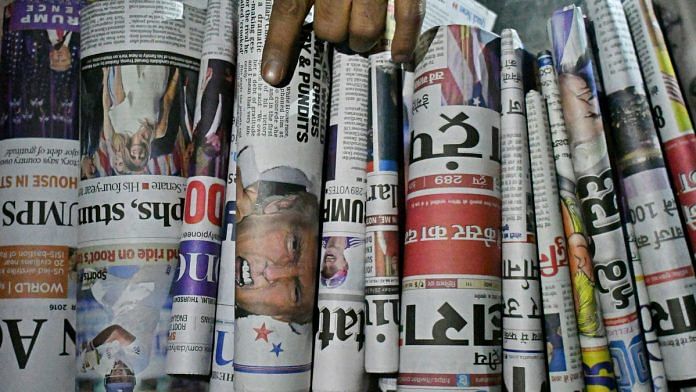The value of trusted, factual journalism has never been higher, the need for it never greater.
Look around the room, whatever room you’re in. How many people do you see? Assuming you are counting correctly, everyone else in the room will come up with the same number. That number is a fact. We can share it. And we can form opinions based on it, such as “this panel is a hit”, or “this restaurant was more popular last year”.
These opinions may differ, but the facts do not. Unless, of course, you are among the growing number of governments that restrict the free expression of facts they don’t like, or who declare that everyone is entitled to their own facts. Down that path lies the demise of responsible journalism and the degradation of freedom and democracy. It is, unfortunately, the path we are on.
In 2018, according to the Committee to Protect Journalists, more than 250 journalists were imprisoned and 53 were killed. In many cases, the perpetrators were unpursued and undeterred. The US president called journalists “the enemy of the people” and popularized the term “fake news” to dismiss much of the factual reporting that didn’t support his point of view. Elsewhere, many countries considered or enacted laws criminalizing so-called “false news” or “fake news,” picking up the theme from the US. Journalists were imprisoned around the world on the purported grounds that they were terrorists or spies. The most obvious of facts were simply disputed.
Also read: Rahul Gandhi mocks Smita Prakash: Journalists under attack or part of partisan politics?
Among other atrocities, Washington Post journalist Jamal Khashoggi was murdered by a kill squad in the Saudi consulate in Istanbul, a fact that the Saudi government initially denied against all the evidence. Reuters reporters Wa Lone and Kyaw Soe Oo were set up, arrested, and unjustly imprisoned in Myanmar in an effort to block their reporting of a fact the government wanted suppressed: the brutal massacre of Rohingya Muslims by Myanmar police and military forces.
Making matters worse, just when journalists most need the public’s support to keep up our increasingly dangerous work, trust in what we do is declining. In the US, the Knight Foundation found that 69% of adults say their trust in the news media has fallen in the past decade, while only 4% say it has increased. Globally in 2018, the Reuters Institute for the Study of Journalism finds trust relatively flat at an uninspiring 44%. Relentless political attacks on journalists haven’t helped inspire trust, nor has the intentional spread of misinformation masquerading as news by anonymous agents of governments and hate groups.
Yet the value of trusted, factual journalism has never been higher, the need for it never greater. At its core, journalism provides a category of information. When accurate, it is immensely useful. Accurate information guides us in personal and professional investment decisions. It also guides us in political choices, such as which policies will benefit ourselves, our families, our nations and the world, and which candidates will serve our communities best. If we don’t know the facts about trade or nuclear proliferation or climate change, how can we begin to respond appropriately? If we don’t have good information about disease and poverty, how can we address them?
Also read: ‘Hurts to see journalists bending backwards to remain handmaidens of proprietors, govt’
Journalism is one way we can learn about these things and spread that learning throughout the world. The American lawyer Louis Brandeis famously wrote in 1913: “Publicity is justly commended as a remedy for social and industrial diseases. Sunlight is said to be the best of disinfectants.” The gist is that people can right wrongs in society only if they know about them, and that journalists play an essential role by informing the public about questionable doings.
Of course, journalists don’t always behave well. Being people, we are imperfect. And there are some journalists who approach their work with malign intent. But most reporters I know in dozens of countries on every continent share Reuters’ view that journalism serves a high public purpose. It produces transparency in markets, holds governments and businesses to account, gives people tools to make well-informed decisions, uncovers wrongdoing, inspires reforms, and tells true and remarkable stories that move and inspire.
It is our responsibility in Davos to affirm that facts matter — to declare our certainty that some things are true and others are not. And we need to reaffirm the essential role of a free press in empowering individuals, strengthening economies, and fueling democracy throughout the world.
Stephen J Adler is the Editor-in-chief of Reuters.
This article was originally published on the website of World Economic Forum. Read the original article here.






